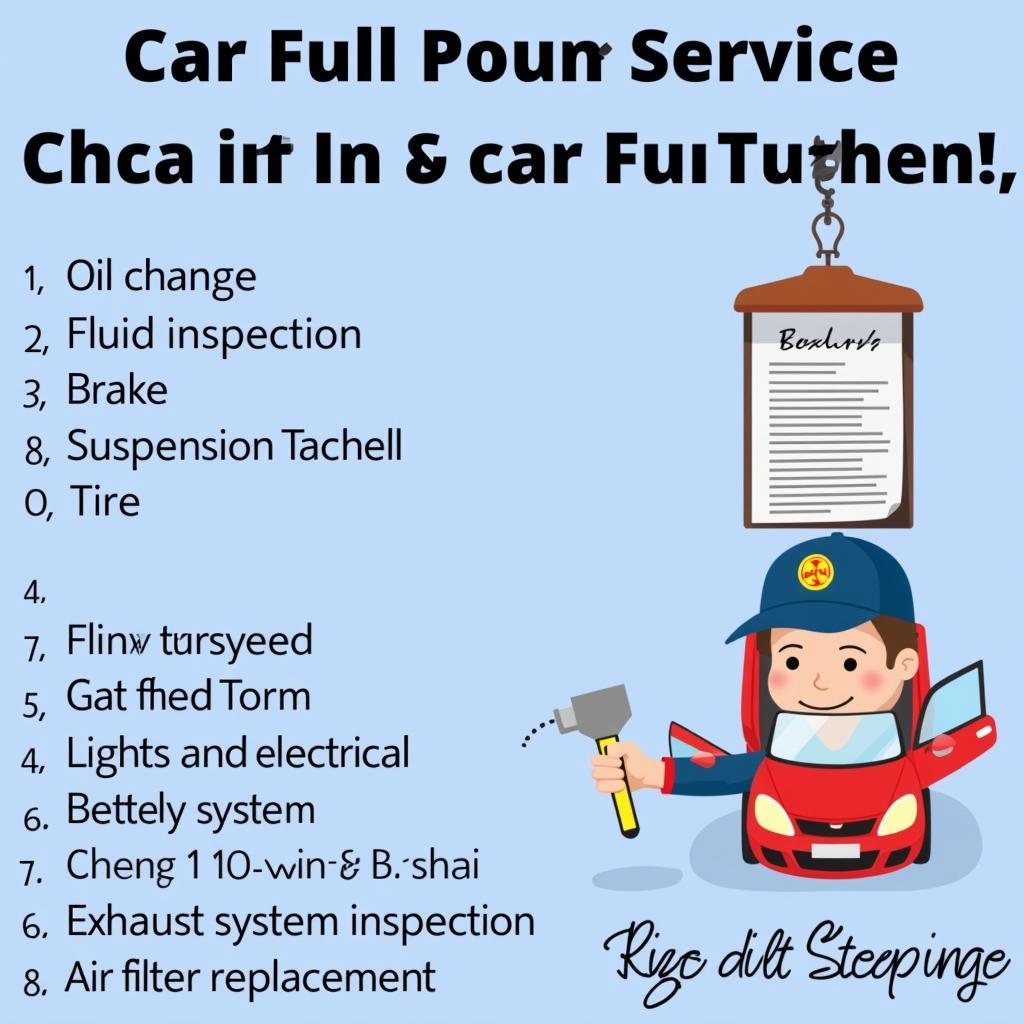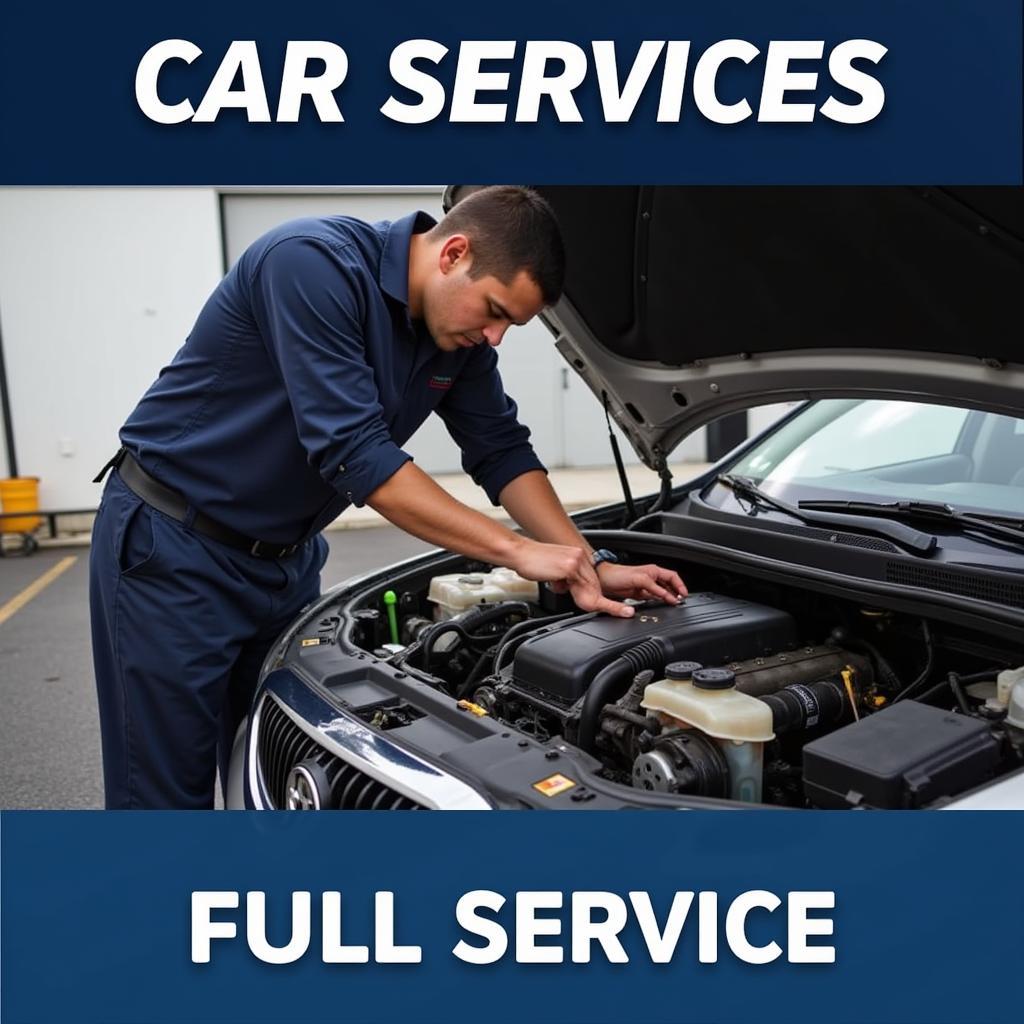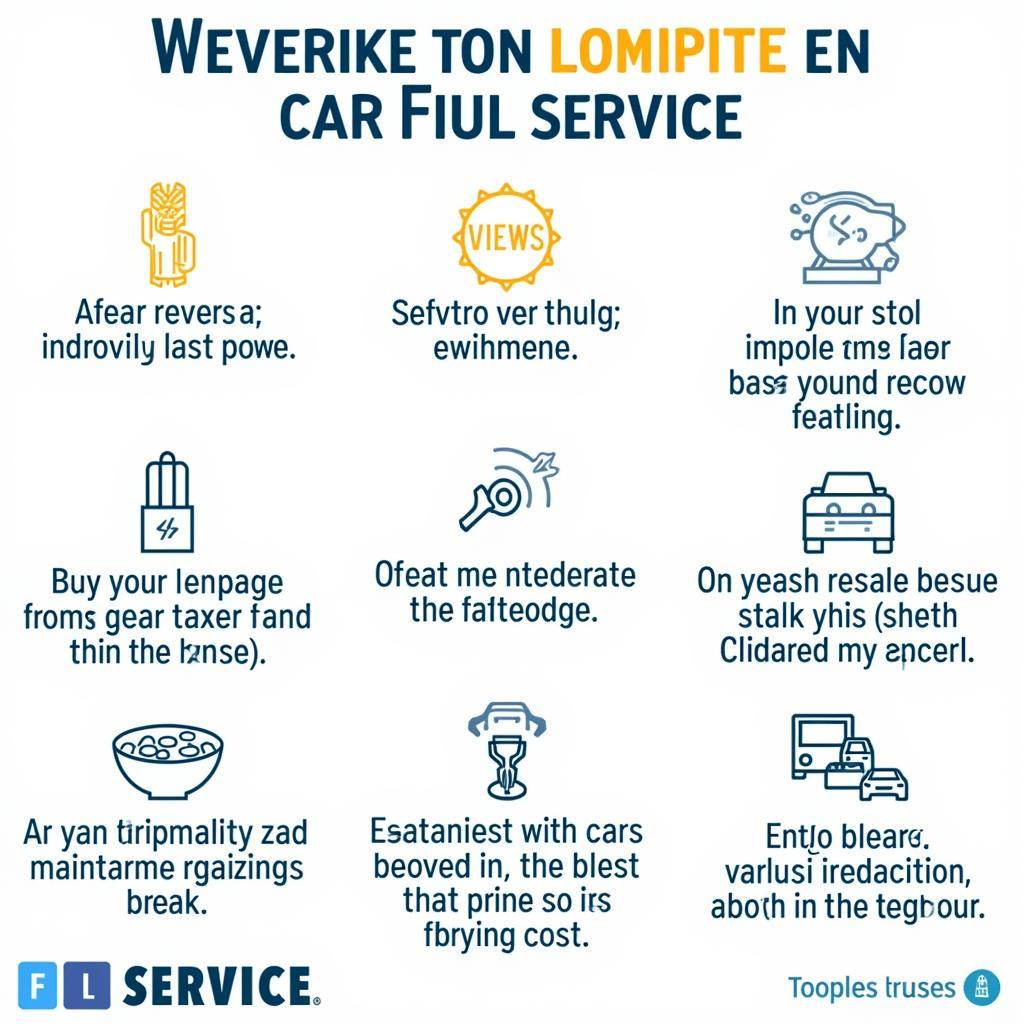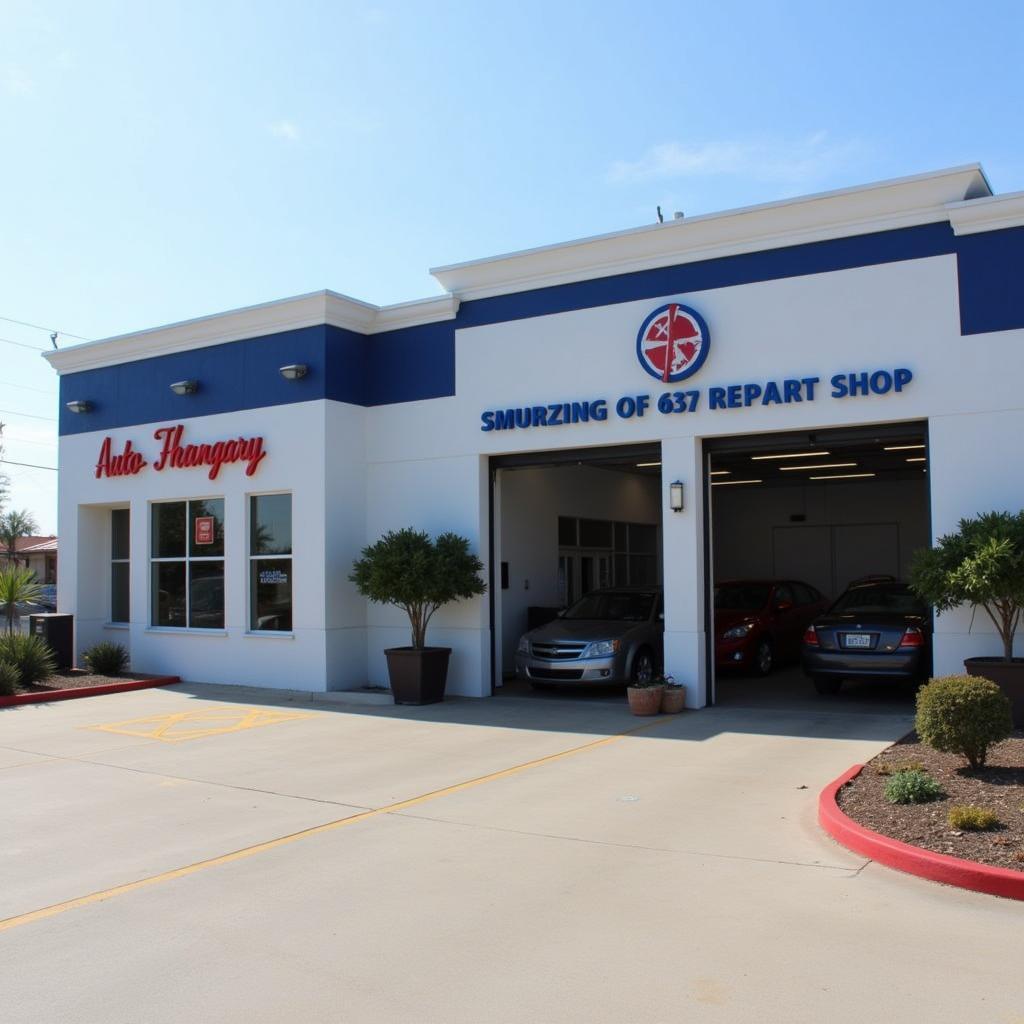Car Full Service: The Ultimate Guide to Maintaining Your Vehicle
A car full service is crucial for keeping your vehicle running smoothly and safely. It’s more than just an oil change; it’s a comprehensive check-up that addresses various aspects of your car’s health, ensuring optimal performance and longevity. From brakes and suspension to fluids and filters, a full service covers it all.
Understanding the Importance of a Car Full Service
Regular car full service offers several benefits, including improved safety, enhanced performance, extended lifespan, and increased resale value. Neglecting regular maintenance can lead to costly repairs down the road and compromise your safety on the road.
What Does a Car Full Service Entail?
A comprehensive car full service typically includes checks and replacements for essential components. These services usually cover the following:
- Engine Oil and Filter Change: Fresh oil is vital for lubricating the engine and preventing excessive wear and tear.
- Fluid Top-Ups: This includes brake fluid, coolant, power steering fluid, and windshield washer fluid.
- Brake Inspection: Checking brake pads, discs, and lines ensures optimal stopping power.
- Suspension Check: Inspecting shocks, struts, and other suspension components helps maintain a comfortable and controlled ride.
- Tire Check: Checking tire pressure, tread depth, and overall condition ensures safe and efficient driving.
- Battery Test: A battery test determines the health and remaining lifespan of your car’s battery.
- Lights and Electrical System Check: Ensuring all lights and electrical components are functioning correctly.
- Exhaust System Inspection: Checking for leaks and damage in the exhaust system.
- Air Filter Replacement: A clean air filter ensures optimal engine performance and fuel efficiency.
 Car Full Service Checklist
Car Full Service Checklist
Choosing the Right Car Full Service for Your Vehicle
Choosing the right car full service depends on several factors, including your car’s make and model, age, mileage, and driving habits. Consult your owner’s manual for the manufacturer’s recommended service intervals.
How Often Should You Get a Car Full Service?
Generally, a car full service is recommended every 12,000 miles or annually, whichever comes first. However, if you drive in harsh conditions or frequently tow heavy loads, you may need more frequent servicing.
“Regular maintenance is an investment, not an expense. It’s the key to maximizing the lifespan and performance of your vehicle,” says John Smith, Senior Automotive Technician at XYZ Auto Repair.
Finding a Reputable Car Full Service Provider
Choosing a reputable car full service provider is crucial for ensuring quality work and avoiding unnecessary expenses. Look for certified mechanics, positive customer reviews, and transparent pricing.
What to Look for in a Car Full Service Provider
- Certifications and Experience: Ensure the mechanics are certified and have experience working on your car’s make and model.
- Customer Reviews: Check online reviews and testimonials to gauge the provider’s reputation.
- Transparent Pricing: Ask for a detailed estimate before any work is performed.
- Warranty: Inquire about warranties on parts and labor.
 Certified Car Mechanic Performing Full Service
Certified Car Mechanic Performing Full Service
“Preventive maintenance is always better than reactive repairs. A regular car full service can identify potential issues before they become major problems,” advises Jane Doe, Lead Mechanic at ABC Auto Services.
Car Full Service: A Smart Investment
Investing in regular car full service is a smart decision that can save you money in the long run. By addressing potential problems early on, you can avoid costly repairs and extend the life of your vehicle.
 Benefits of Car Full Service
Benefits of Car Full Service
A car full service is essential for maintaining the health, performance, and longevity of your vehicle. It’s an investment that pays off in the long run by preventing costly repairs and ensuring a safe and enjoyable driving experience.
FAQ
-
What is included in a car full service? A car full service includes checks and replacements for essential components such as engine oil, filters, fluids, brakes, suspension, tires, battery, lights, electrical system, and exhaust system.
-
How often should I get a car full service? Generally, a car full service is recommended every 12,000 miles or annually, whichever comes first.
-
How much does a car full service cost? The cost of a car full service varies depending on your car’s make and model, the service provider, and the specific services included.
-
How long does a car full service take? A car full service typically takes a few hours to complete.
-
Can I do a car full service myself? While some basic maintenance tasks can be done at home, a full service is best left to qualified mechanics with the proper tools and expertise.
-
What are the benefits of a car full service? Benefits include improved safety, enhanced performance, extended vehicle lifespan, increased resale value, and cost savings.
-
How do I find a reputable car full service provider? Look for certified mechanics, positive customer reviews, transparent pricing, and warranties.
Need help with other car maintenance topics? Check out our articles on oil changes, brake repairs, and tire maintenance. For immediate assistance, contact us via WhatsApp: +1(641)206-8880 or Email: [email protected]. Our customer service team is available 24/7.

